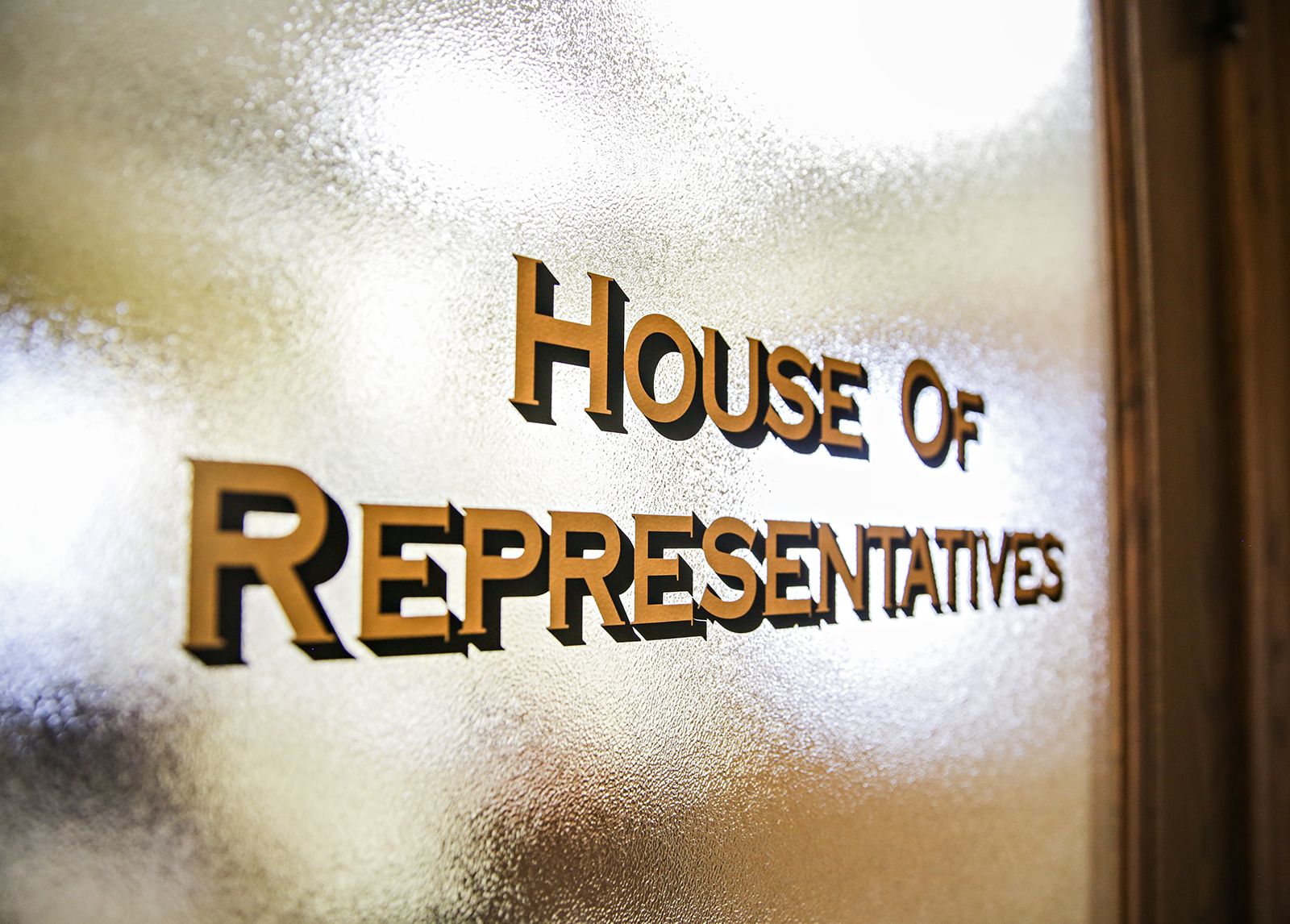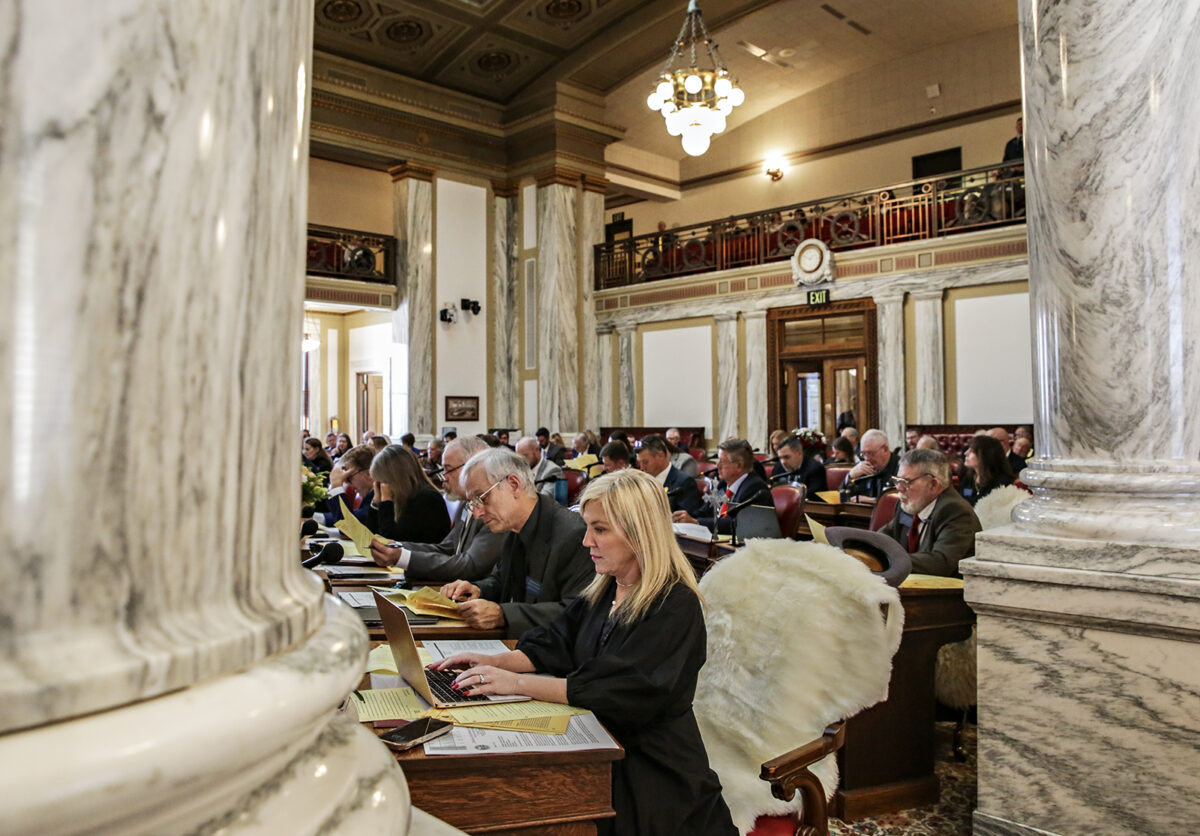Montana House Kills Private School Tax Credit Bill
Thirteen Republicans joined all Democrats on Wednesday to vote down a bill set to dole out tax credits to Montana families sending their children to private schools
By Denali Sagner
After moving successfully through two committee hearings and one floor vote, a bill aimed at providing tax credits to families attending private schools in Montana died on Wednesday after 13 House Republicans joined with Democrats to strike it down.
Brought by Rep. Lee Deming, R-Laurel, House Bill 320 proposed the creation of Montana’s Academic Prosperity Program for Scholars, or MAPPS. The program would offer families two ways to receive financial assistance for private school attendance — either by applying for a donation-funded scholarship or for a credit on their state taxes. Families would be eligible to receive around $7,000 per child per year in financial assistance or tax credits. The MAPPS scholarship program was set to be funded by donations, which would also be eligible for tax credits. Corporations and individuals would be permitted to receive a tax credit of up to $200,000 per year for donations to the scholarship program.
In its first year, MAPPS would allow up to $4 million in donation tax credits from individuals and corporations and another $4 million in individual tax credits for families who send their children to private school. If the aggregate donation cap were to be met, the bill would increase the cap by 20% for the succeeding tax year, not to exceed $10 million.
Deming, the bill sponsor, called MAPPS “a small expense for a life-changing program for families seeking education choice for their children” during a House Education Committee hearing last month.
The bill received staunch support from conservative policy groups and school choice activists, who described it as a critical step in ensuring educational opportunity to families who may not want to keep their children in public schools. Public school advocates warned the program would divert necessary resources away from the state’s school districts.
During a House floor hearing on Feb. 10, Democrats and some Republicans railed against the bill, describing it as lacking accountability and hurting Montana’s already financially strapped public education system.
Rep. Sherry Essmann, R-Billings, criticized the MAPPS tax credits as a financial benefit for wealthy families.
“A rich person can get a $200,000 tax credit that they can either use in one year, two years or three years until they use it all up. And then, they’ll probably be able to apply for it again after that if they want to keep avoiding Montana income tax,” she said.
Despite the program being funded partially by private donations, a fiscal note prepared by the Office of Budget and Program Planning projected MAPPS would cost the state $7.2 million by 2027 and $11.3 million by 2029.

In an impassioned plea to his fellow lawmakers, first-term Rep. Pete Elverum, D-Helena, urged legislators to consider the potential impacts MAPPS would have on their districts’ public schools.
“Look at your public schools in your small towns. Look at the kids that are coming out of them and understand that they are making really good friends with people that may not agree with them. They get to go home and have supper with their families, say grace, go to church on the weekends and then come back together and influence the rest of their communities. To see us continually and intentionally and, in this case, financially, incentivize continuing separation of our communities, I just can’t back it and I’d ask you not to either,” Elverum said.
Other Republicans, including Rep. Terry Falk, R-Kalispell, lauded the bill as a win for “universal school choice.”
Using a tape measure to illustrate how negligible the cost of MAPPS would be compared to the overall state budget — and subsequently being reprimanded for violating decorum by using props on the floor — Falk praised his children’s private school education and said Montana should follow in the footsteps of other states.
The bill passed second reading on Feb. 10 by two votes and was sent to the House Appropriations Committee, where it passed again by one vote.
By its third reading on the House floor on Wednesday, however, eight Republicans changed their votes from yea to nay. The bill died by 10 votes — with 13 Republicans joining all Democrats to strike it down.
“I’m pretty disappointed,” Deming told the Beacon on Wednesday evening, adding that the state spends “an awful lot of money on our schools” but couldn’t “shake loose a little bit of money for our kids who don’t fit in the public schools.”
“I don’t understand,” he said.